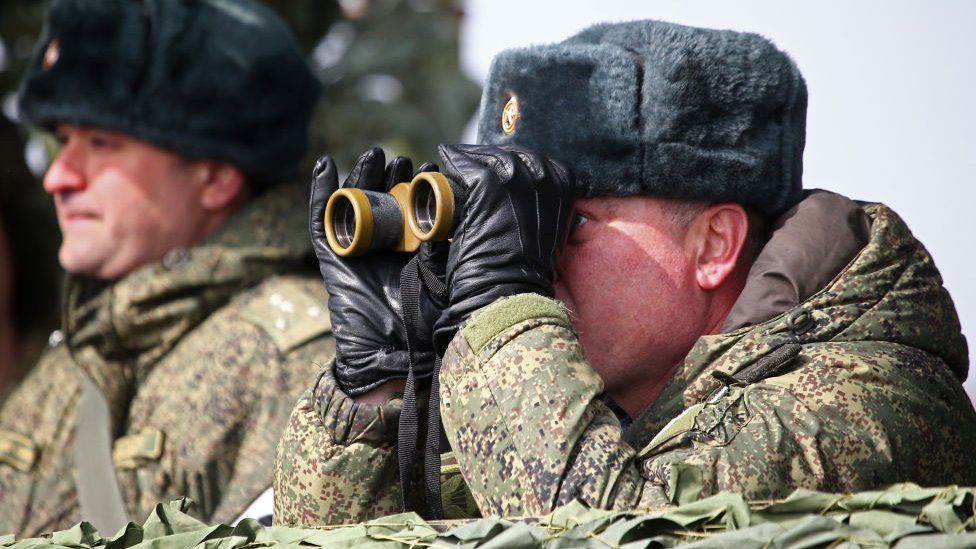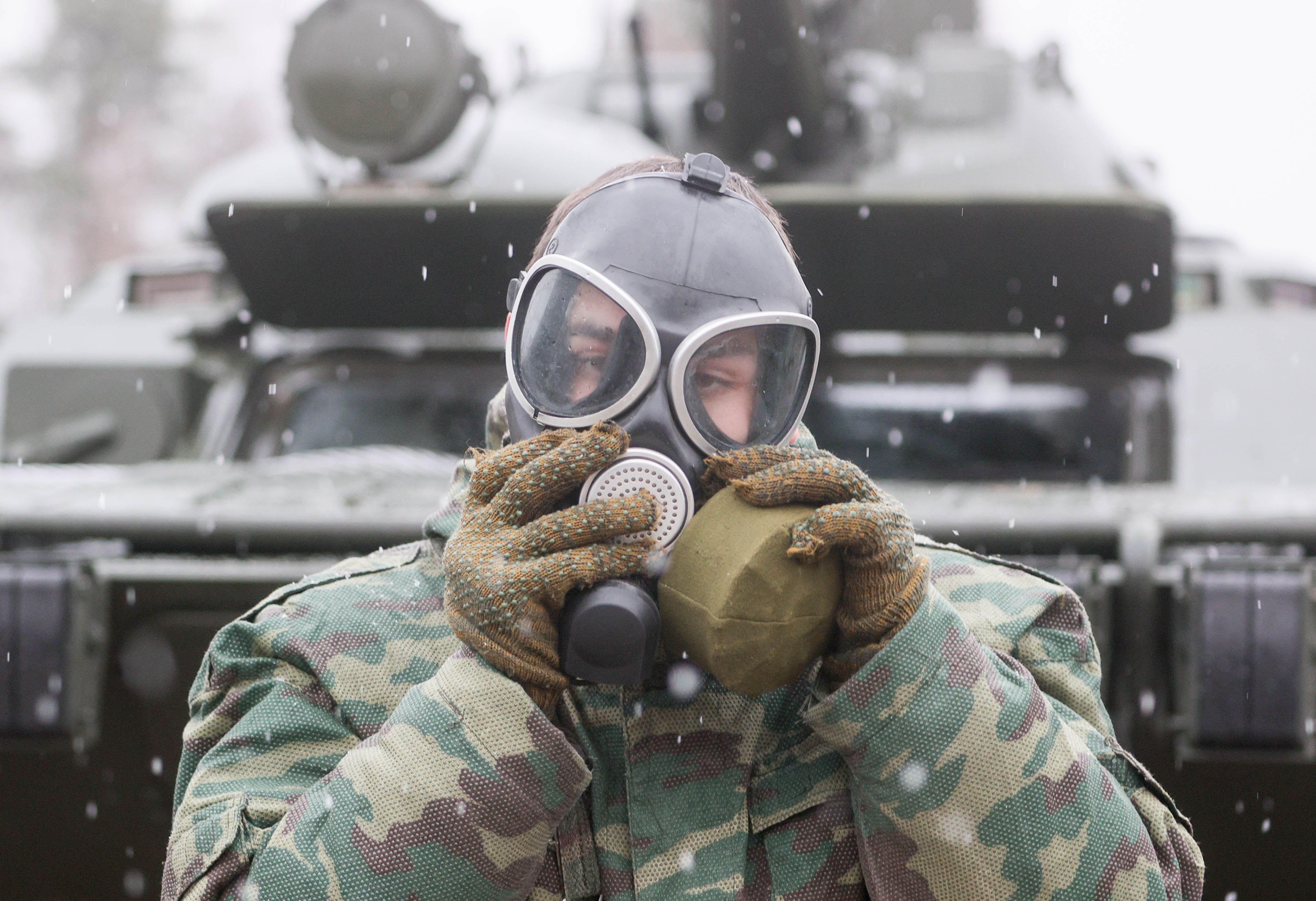Nigeria’s best bet, for now, is refusing to be a pawn of either NATO or Russia in this seeming prologue to WWIII because the former produced this script President Putin has been citing to pursue his interests. In 1999, NATO countries cracked down on Serbia in a bid to force it to stop what they perceived as violence against an independence movement in Kosovo. Russia rushed to protest the action, and argued that it’s a violation of the principle of sovereignty enshrined in the UN charter, and that NATO was neither acting in self-defence nor was it authorized by UN Security Council to interfere.

A few days ago, a former presidential aspirant stirred up controversy when he declared that the escalation of the war between Russia and Ukraine could be a springboard for Africa’s economy. It’s a poor attempt at interpreting international affairs through a realist lens, and such could’ve drawn a rational response if it were uttered to informed policymakers. The honest answer would’ve reassured the deluded war profiteer that Africa isn’t prepared to step into the big shoes of the Western powers contemplating Vladimir Putin’s challenge.

The simplistic projection, for Nigeria, has been a repeat of the 1991 Gulf War windfalls. Even if Putin gets the Saddam Hussein treatment, the economic sense of Nigeria benefiting from the sanctions and consequent energy crises is unlikely this time around. Having under-invested in the Oil and Gas sector over time, the Nigerian oil industry has been lagging in meeting even the OPEC quota of 1.7m barrels per day. Last January, it could only produce 1.4m barrels per day, up from 1.2m barrels per day a month earlier.
But the problem isn’t even Nigeria’s production capability, but what increasing global oil prices translate into in the local market. Nigerian policymakers signed the country’s fate when they decided to maintain the subsidy regime, and it’s probably the compromise with which most of the country agreed. N3 trillion has been budgeted for subsidy in 2022 based on a $62 per barrel benchmark. Now that global oil price has been dancing between $90 and $100 per barrel in the past days, the maths of what Nigeria would pay as subsidy doesn’t count as windfalls.
Nigeria’s best bet, for now, is refusing to be a pawn of either NATO or Russia in this seeming prologue to WWIII because the former produced this script President Putin has been citing to pursue his interests. In 1999, NATO countries cracked down on Serbia in a bid to force it to stop what they perceived as violence against an independence movement in Kosovo. Russia rushed to protest the action, and argued that it’s a violation of the principle of sovereignty enshrined in the UN charter, and that NATO was neither acting in self-defence nor was it authorized by UN Security Council to interfere.
When, eight years later, Russia too invaded Georgia to stop what it perceived as violence against separatists in Ossetia and Abkhazia, NATO kicked. But Russia repeated exactly what NATO said when it invaded Kosovo—that they were responding to a “humanitarian crisis and a threat to regional security.” It’s the same story when Russia captured Crimea from Ukraine in 2014. It’s the same excuse being parroted in the match to Kiev.
The International system has never been a playground of moralities, however subjective they are; it’s always been a stage for pursuing interests no matter the size of masks worn. Putin isn’t a saint, but none of the great powers against his “sensitivity” to Ukraine’s romance with NATO would fold its arms and let potential threats brew around their borders.
When the Soviet Union deployed ballistic missiles in Cuba in 1962 to balance the United States’ nuclear presence in Italy and Turkey, it led to a diplomatic standoff that lasted over a month. Washington couldn’t accept what it had done on the Soviets’ continent. They were on the verge of a nuclear war, and that’s how far proactive countries go to neutralize threats to their sovereignty.
The arguments around what Putin is doing to Ukraine sound different on a moral pedestal than it does in foreign policy analysis, and that’s probably why statecraft is mostly the business of those ready to make difficult decisions. This also explains why China, India and United Arab Emirates abstained from voting when, last Friday, the UN Security Council voted on a resolution to condemn Russia, even though Moscow vetoed the proposed resolution.
The enthusiasm with which Libya was attacked and Gaddafi ousted by NATO-led forces is missing in the ongoing deliberations around the security threats posed by Putin, and understandably so. Moscow won’t go down without taking some NATO countries down with it, and not even the United States would be spared from Putin’s desperate bid to demonstrate his capability. No country led by sane decision-makers would rush to take such a risk.
The most convenient choice before NATO is sanctioning but economic statecraft is hardly effective in foreign policy decision-making. Sanctions are intended to signal the sanctioner’s intention or influence domestic politics of the sanctioned states, but available historical records show that sanctions are largely futile or even disastrous ideas. They have never really produced desired outcomes and, in many cases, the sanctioned states emerge stronger.
When the Western States and Russia agreed to sanction Iraq for invading Kuwait in 1990, Iraq began to sell its oil in the global market through Jordan. The expected collapse of the Iraqi economy never happened because it didn’t take long before France and Russia realized that they couldn’t stand with the United States in ignoring the middle-eastern goldmine.
During the Cold War, the UN Security Council banned apartheid South Africa and Rhodesia to signal its intention towards their repressive regimes. While South Africa grew militarily, Rhodesia cushioned its economy by buying food products from neighbouring countries like Tanzania. They were unbothered.
The 1974 Jackson-Vanik Amendment of the United States “targeted” communist states of China and the Soviet Union – for “violating human rights” – but it created an outcome that favoured these targeted states. It got their citizens to “rally around their flag” – to be consciously nationalistic having been re-oriented to perceive the sanctioner as the enemy.
China’s current hesitation to participate in sanctioning Russia must be driven by the memory of the humiliating impact of sanctions against it, following the 1989 Tiananmen Square incident. It was what inspired Beijing to think of a future independent of the West, and the consequent sound economic policies have led to the emergence of this formidable China.
This isn’t the war you pray for, Nigeria. This one comes with shortfalls for economically ill-prepared countries. The windfalls of wisdom to take from Russia’s crackdown on Ukraine are that the most important aspect of every country is their military capability. Even if a country has a leading economy, most colourful culture, most beautiful religion, fanciest social amenities and the highest standard of living, it takes one strategic military aggression to undo those and turn a prosperous country into a global charity case.



















